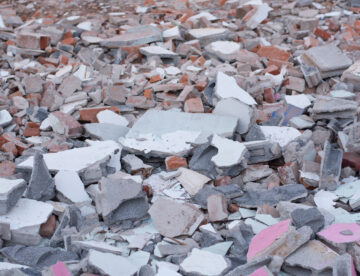
In a single year, the UK generates 67.8 million tonnes of non-hazardous Construction and Demolition waste, a figure that represents 62% of the nation’s total waste output.
This waste is made up of all kinds of products – concrete bricks, tiles, ceramics, insulation, wood, glass, plastic, bituminous mixtures, cement, gypsum, paints, varnishes, soil, stones, coal, tar, cables, pipes, adhesives and sealants – to name a few!
While much of this is recovered, taking action to reduce construction waste has proven to be good, not only for the environment, but also for business. Keep reading to find out more…

With soaring energy prices, interest rate rises, some huge hikes in the cost of materials and the continuation of labour shortages, many construction industry businesses could be in for some turbulent times this year.
In many cases, the cost pressures are made worse by the fact that contractors are both tied into existing work which was based on estimations set well before the current price rises and are also busy looking at how they can respond to invitations to tenders in ways that make the jobs viable within the current circumstances. In today’s blog, we’re taking a look at what construction businesses (and those who work within them) can do to face this challenge.

Mistakes can be made at any phase of a construction project. Some may be minor but others can have serious consequences, affecting costs, schedules and, of course, the health and safety of workers. When the stakes are this high, it’s important that any mistakes lead to lessons being learnt, but it’s even more important that they are avoided in the first place. With that in mind, here’s our short guide to avoiding some of the common pitfalls in construction; in other words what NOT to do!
